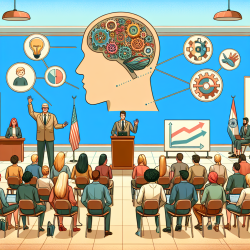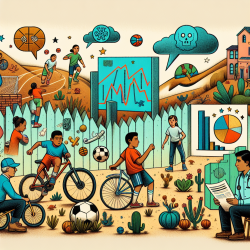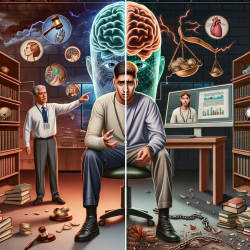Introduction
The intersection of psychoanalysis and global affairs has often been overlooked in educational settings, yet it holds significant potential for improving child outcomes. The research article, "Remembering Jimmy Carter and his Contribution to the Role of Psychoanalysis in World Affairs," sheds light on how psychoanalytic principles can be applied to address societal conflicts and enhance educational practices. This blog explores how practitioners can integrate these insights to foster better learning environments.
The Role of Large-Group Identity in Education
Large-group identity, as defined by Volkan (1997), refers to the shared identity among thousands or millions of people. This concept is crucial in understanding how societal and cultural backgrounds influence children's learning experiences. By recognizing the large-group identities that students bring into the classroom, educators can tailor their approaches to be more inclusive and effective.
Implementing Psychoanalytic Concepts in Educational Settings
Several psychoanalytic concepts discussed in the article can be directly applied to educational settings:
- Chosen Trauma and Glory: Understanding the historical and cultural narratives that shape students' identities can help educators create more empathetic and supportive learning environments.
- Transgenerational Transmission: Recognizing how past traumas are passed down can inform interventions that address emotional and behavioral challenges in students.
- Psychological Borders: Identifying and addressing psychological barriers can facilitate better communication and collaboration among students from diverse backgrounds.
Encouraging Further Research
While the insights from Jimmy Carter's legacy provide a strong foundation, there is a need for further research to explore the full potential of psychoanalysis in educational settings. Practitioners are encouraged to conduct studies that examine the impact of psychoanalytic interventions on student outcomes, particularly in diverse and multicultural classrooms.
Conclusion
Integrating psychoanalytic principles into educational practices can lead to more inclusive and effective learning environments. By understanding the large-group identities and historical narratives that shape students' experiences, educators can better support their emotional and academic development. For those interested in delving deeper into this topic, the original research paper offers a comprehensive exploration of these concepts.
To read the original research paper, please follow this link: Remembering Jimmy Carter and his Contribution to the Role of Psychoanalysis in World Affairs.










